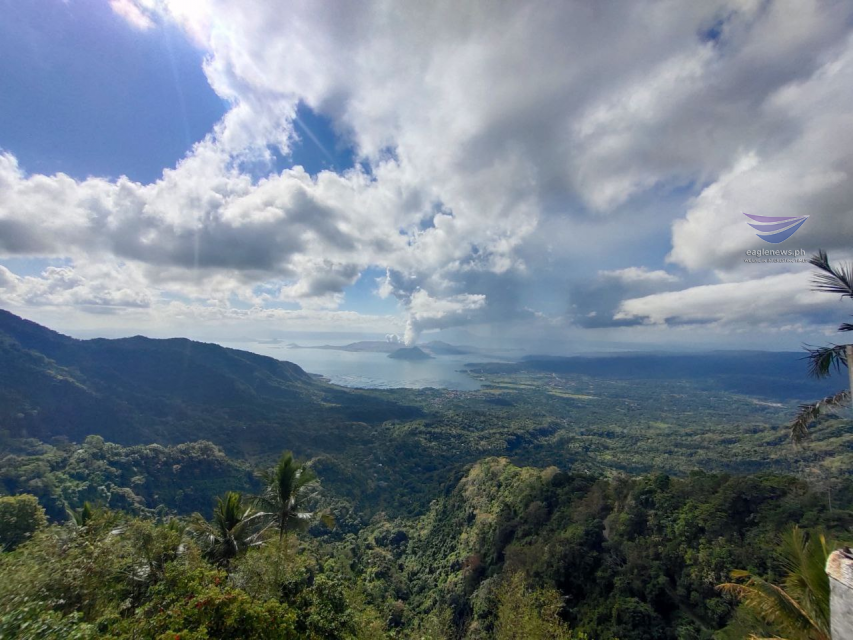

(Eagle News) – More than 1,800 families have been affected by the ongoing volcanic activity of Taal volcano as the Philippine government prepared over P1 billion in standby funds and prepositioned food stockpiles and health-related supplies
The National Disaster Risk Reduction and Management Council (NDRRMC) said 1,823 families or 6,568 persons have been affected by Taal Volcano’s activity, including sulfur dioxide emissions, among others.
Taal Volcano is still under Alert Level 3 signifying magmatic unrest.
As of Wednesday morning, March 30, the Philippine Institute of Volcanology and Seismology (PHIVOLCS) recorded four volcanic tremor events of two to five minutes in the past 24-hour period. Background tremor has also persisted since March 29, 2022.
“Activity at the Main Crater was dominated by upwelling of hot volcanic fluids in its lake which generated plumes 1,500 meters tall that drifted southwest,” PHIVOLCS said in its March 30 bulletin.
“Sulfur dioxide (SO2) emission averaged 4,474 tons/day on 29 March 2022,” it said.


There are 17 affected barangays in the CALABARZON region. The displaced families housed in evacuation centers as of Wednesday, March 30, have reached 1,166 equivalent to 4.039 individuals.
The displaced families staying outside evacuation centers have reached 484 or 1,886 persons.
The Department of Social Welfare and Development (DSWD) said it has prepared P1.154 in standby funds to address the needs of displaced families in the CALABARON region due to the ongoing Taal volcanic activity.
DSWD Secretary Rolando Bautista said in his report to President Rodrigo Roa Duterte on Tuesday, March 29, that his department has prepositioned food and non-food items amounting close to P80 million at the General Mariano Alvarez Warehouse in Cavite and Batangas Sports Complex for the immediate need of the residents affected by the Taal Volcano eruption.
“Ang DSWD po ay handang magbigay ng kaukulang tulong sa anumang sakuna. Kaya makikita po natin dito na halos P1.154 bilyong halaga ng standby funds at stockpile ang buong ahensiya,” Bautista told President Duterte.
Aside from prepositioning relief goods and other assistance, Bautista spelled out several measures that the DSWD has adopted to assist residents affected by the eruption.
These include the installation of advance satellite office at the Provincial Operations Center to monitor the situation and oversee relief operations in case of heightened alert level, as well as the deployment of emergency telecommunication equipment like two-way radios and satellite phones to ensure active lines of communication.
The DSWD is working with logistics partners like the World Food Programme and the Philippine Disaster Resilience Foundation for additional land transportation assets that could be used by the department.
Bautista also reported that the DSWD has mobilized volunteers at its National Resource Operations Center to speed up the repacking of relief supplies based on pre-disaster needs analysis.
The DSWD said it had already provided assistance to Batangas residents affected by the eruption in coordination with local government units.
Alert Level 3 was raised over Taal Volcano on March 26 at 8 a.m. due to phreatomagmatic eruption of the Main Crater between 07:22 AM and 08:59 AM that generated up to 3,000 m-tall eruption plumes. The activity was recorded by 11 of 16 seismic stations of the Taal Volcano Network or TVN. Volcanic tremor events lasted between 5 and 86 minutes. As many as 66 discrete explosions were also detected by 5 of 7 infrasound stations of Phivolcs
(Eagle News Service)
